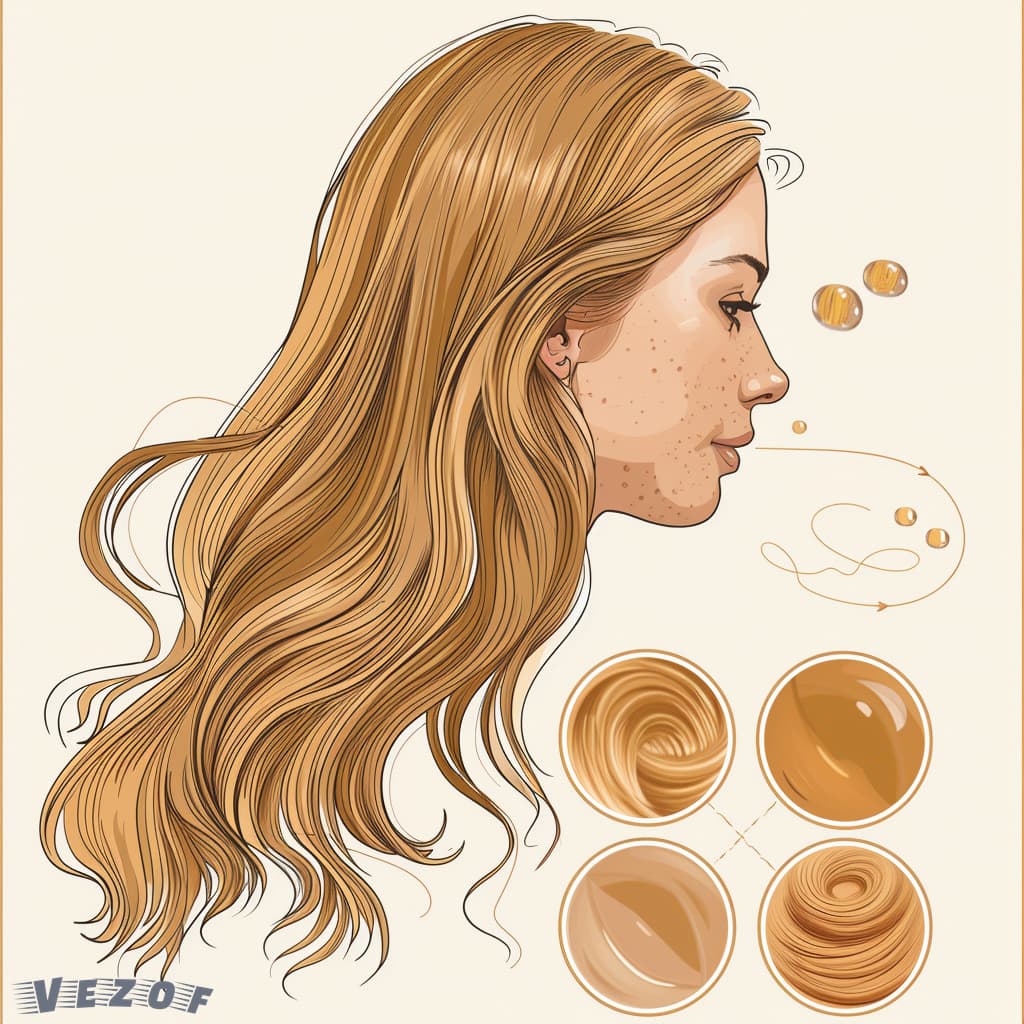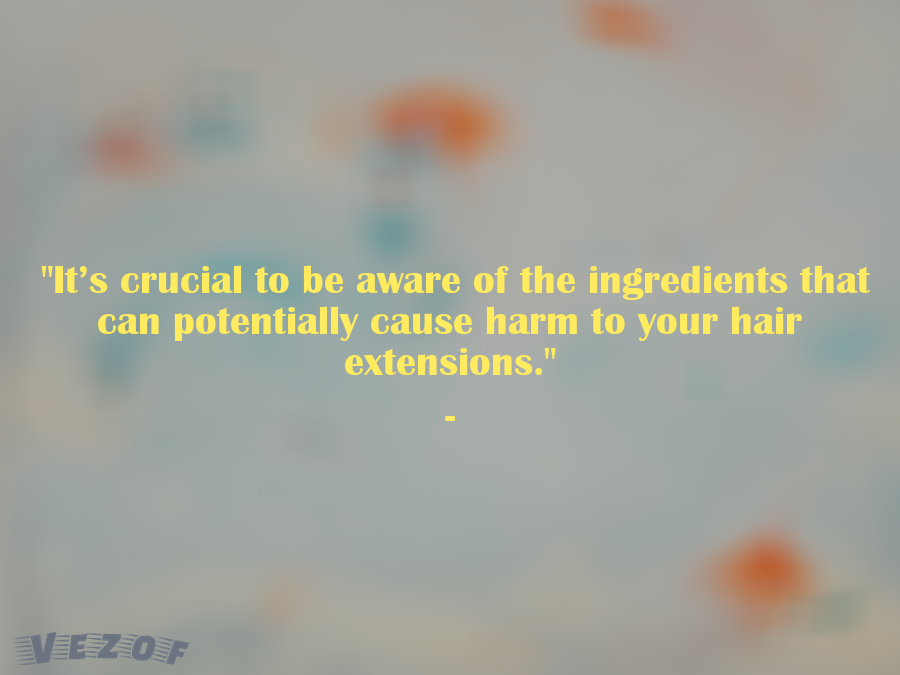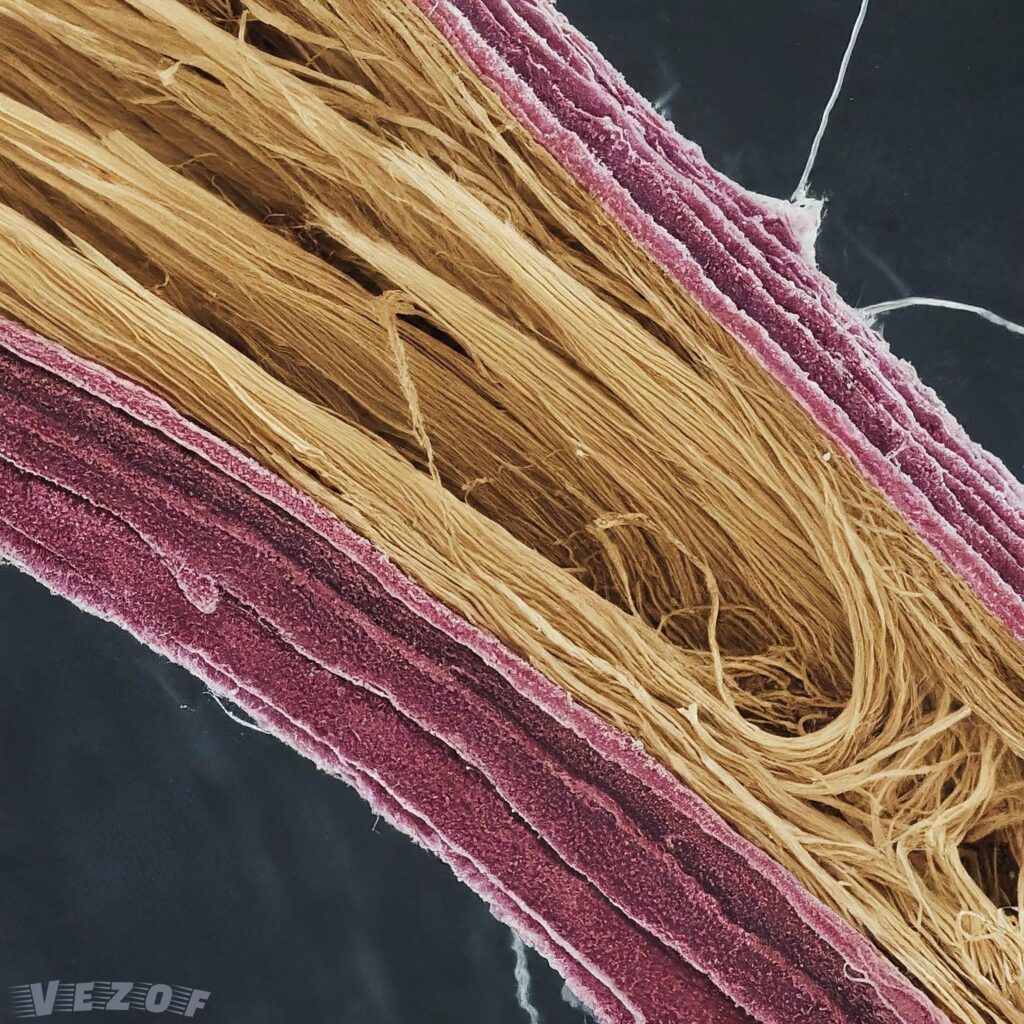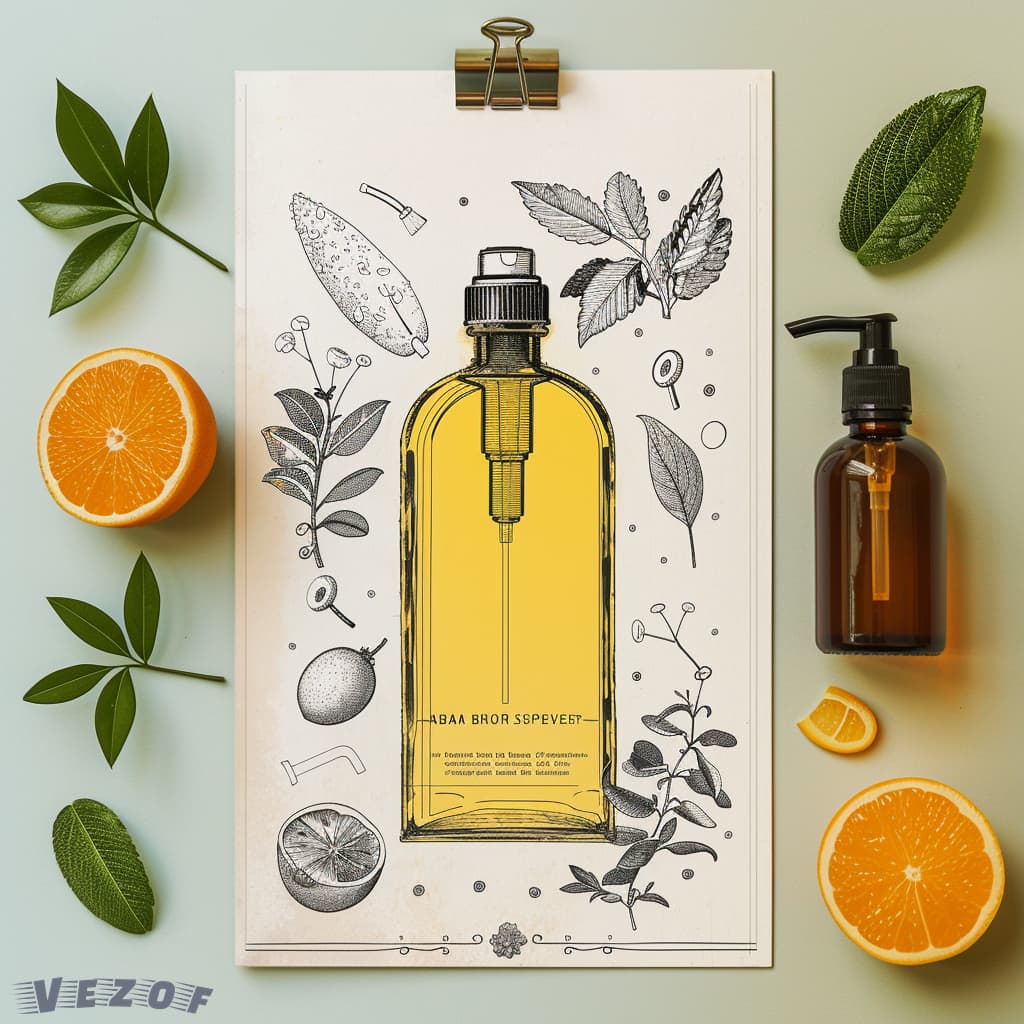Caring for hair extensions requires a different approach than caring for natural hair, especially when it comes to choosing the right shampoo. Using the wrong shampoo can lead to damage, dryness, and premature deterioration of your extensions.
In this article, we’ll explore the world of hair extensions, the impact of shampoo ingredients, and provide you with valuable insights to help you make informed choices.
Different Types of Hair Extensions and Their Care Needs
Before delving into the specifics of shampoo ingredients, it’s essential to understand the different types of hair extensions and their unique care requirements.
Clip-in Extensions
These are temporary extensions that can be easily clipped in and removed. They are a popular choice for those who want to add volume or length for special occasions. Clip-in extensions require gentle handling and should be removed before shampooing.
Tape-in Extensions
These extensions are attached to your natural hair using adhesive tape. They provide a semi-permanent solution and can last up to eight weeks with proper care. Tape-in extensions require specialized shampoos and conditioners to avoid damaging the adhesive.
Keratin Bonded Extensions
Also known as fusion or U-tip extensions, these are attached using a keratin-based adhesive. They offer a long-lasting solution but require careful maintenance to prevent damage to the bonds.
Sew-in Extensions
These extensions are braided or sewn into your natural hair, creating a semi-permanent solution. Sew-in extensions require gentle shampooing and conditioning to avoid tangling and matting.
Micro-link Extensions
These extensions are attached using small, cylindrical links that are clamped onto your natural hair. They offer a long-lasting solution but require specialized care to prevent damage to the links.
Each type of hair extension has its own unique care requirements, and choosing the right shampoo is crucial to maintaining their longevity and appearance.
How Does Shampoo Affect Hair Extensions?
Shampoo plays a vital role in the care and maintenance of hair extensions. Unlike natural hair, which receives nourishment from the scalp, hair extensions rely solely on the products you use to maintain their health and appearance. The wrong shampoo can have detrimental effects on your extensions, leading to dryness, tangling, and premature deterioration.

Hair extensions are more susceptible to damage from harsh shampoo ingredients because they lack the natural oils and moisture that your scalp provides to your natural hair. Shampoos containing sulfates, silicones, and certain types of alcohols can strip away the essential oils and moisture from your extensions, leaving them dry, brittle, and prone to breakage.
What Ingredients Should Be Avoided in Shampoos for Extensions?
When it comes to choosing a shampoo for your hair extensions, it’s crucial to be aware of the ingredients that can potentially cause harm.

Here are some of the most common ingredients to avoid:
Sulfates
Sulfates are detergents commonly found in shampoos that create a rich lather. Examples include Sodium Lauryl Sulfate (SLS) and Sodium Laureth Sulfate (SLES). Sulfates can strip away natural oils and moisture from hair extensions, leading to dryness and brittleness.
Silicones
Silicones are synthetic compounds used in shampoos and conditioners to add shine and smoothness. Examples include dimethicone, cyclomethicone, and amodimethicone. While silicones can initially make hair extensions appear smooth and shiny, they can build up over time, causing dullness and weighing down the extensions.
Harsh Alcohols
Certain types of alcohols, such as isopropyl alcohol, ethanol, and propanol, can be drying and damaging to hair extensions. These alcohols can strip away essential oils and moisture, leading to dryness, frizz, and breakage.
Parabens
Parabens are preservatives used in many personal care products, including shampoos. Examples include methylparaben, propylparaben, and butylparaben. While the safety of parabens is debated, some individuals prefer to avoid them due to potential health concerns.
Sodium Chloride (Salt)
Sodium chloride, or salt, is sometimes added to shampoos to enhance lathering and thickening properties. However, salt can be drying and damaging to hair extensions, causing them to become brittle and prone to breakage.
It’s important to carefully read the ingredient labels on shampoos and choose products specifically formulated for hair extensions or color-treated hair, as these are typically free from harsh ingredients.
Are Sulfates Harmful to Extensions?
Yes, sulfates are generally considered harmful to hair extensions. Sulfates, such as Sodium Lauryl Sulfate (SLS) and Sodium Laureth Sulfate (SLES), are detergents that create a rich lather in shampoos. While they are effective at removing dirt and oil from natural hair, they can be too harsh for hair extensions.

Sulfates can strip away the natural oils and moisture from hair extensions, leaving them dry, brittle, and prone to tangling and breakage. Since hair extensions do not receive nourishment from the scalp like natural hair, they rely solely on the products used to maintain their health and appearance. Using sulfate-containing shampoos can accelerate the deterioration of hair extensions, leading to a shorter lifespan and a dull, lifeless appearance.
It’s important to note that while sulfates are generally not recommended for hair extensions, some individuals may have different experiences or preferences. However, to err on the side of caution and ensure the longevity of your extensions, it’s best to opt for sulfate-free shampoos specifically formulated for hair extensions or color-treated hair.
Do Silicones Impact Hair Extensions?
Yes, silicones can impact hair extensions, and it’s generally recommended to avoid or limit the use of silicone-based products on hair extensions. Silicones are synthetic compounds commonly found in shampoos, conditioners, and styling products. While they can initially make hair extensions appear smooth and shiny, they can also cause buildup over time, leading to several issues.
Silicone buildup can weigh down hair extensions, causing them to appear dull and lifeless. Additionally, the buildup can interfere with the adhesive bonds or clips used to attach the extensions, potentially causing them to slip or become loose. This buildup can also make it difficult for moisture and other nourishing ingredients to penetrate the hair shaft, leading to dryness and brittleness.
While some silicones are water-soluble and can be rinsed out more easily, others are not and can accumulate over time. It’s important to read ingredient labels carefully and choose shampoos and conditioners that are silicone-free or contain water-soluble silicones in small amounts.
If you do use silicone-based products on your hair extensions, it’s recommended to use a clarifying shampoo periodically to remove any buildup and prevent long-term damage.
What Types of Alcohols Should Be Avoided?
When it comes to hair extensions, certain types of alcohols should be avoided in shampoos and other hair care products. These alcohols can be drying and damaging to hair extensions, leading to dryness, frizz, and breakage.
The alcohols to avoid include:
- Isopropyl Alcohol (Isopropanol)
- Ethanol
- Propanol
- Benzyl Alcohol
- SD Alcohol (Alcohol Denat)
These alcohols are commonly used in hair care products as solvents, preservatives, or drying agents. While they may help with product consistency or preservation, they can strip away the natural oils and moisture from hair extensions, leaving them dry, brittle, and prone to tangling and breakage.
It’s important to note that not all alcohols are harmful to hair extensions. Fatty alcohols, such as cetyl alcohol, stearyl alcohol, and cetearyl alcohol, are often used in hair care products as emollients and can actually help to condition and moisturize hair extensions.
When choosing a shampoo for your hair extensions, it’s essential to read the ingredient labels carefully and avoid products containing the aforementioned drying alcohols. Instead, opt for shampoos specifically formulated for hair extensions or color-treated hair, as these are typically free from harsh alcohols and other damaging ingredients.
What Are the Best Ingredients for Extension-Friendly Shampoos?
While it’s important to avoid certain ingredients in shampoos for hair extensions, it’s equally crucial to look for beneficial ingredients that can nourish and protect your extensions.

Here are some of the best ingredients to look for in extension-friendly shampoos:
Natural Oils and Butters
Ingredients like argan oil, coconut oil, shea butter, and jojoba oil can help to moisturize and condition hair extensions, preventing dryness and breakage.
Proteins
Proteins like keratin, silk, and wheat can help to strengthen and repair hair extensions, improving their overall health and resilience.
Botanical Extracts
Extracts from plants like aloe vera, chamomile, and green tea can provide gentle cleansing and nourishment for hair extensions, while also soothing the scalp.
Vitamins and Antioxidants
Ingredients like vitamin E, vitamin B5, and antioxidants can help to protect hair extensions from environmental damage and promote a healthy shine.
Gentle Surfactants
Instead of harsh sulfates, look for gentle surfactants like sodium cocoyl isethionate or decyl glucoside, which can effectively cleanse without stripping away moisture.
When choosing a shampoo for your hair extensions, it’s important to look for products that are specifically formulated for extensions or color-treated hair. These shampoos are typically free from harsh ingredients and enriched with nourishing and protective components that can help to maintain the health and longevity of your extensions.
Which Shampoos Are Recommended for Hair Extensions?
When it comes to choosing the right shampoo for your hair extensions, there are several reputable brands and products that are highly recommended by professionals and extension wearers alike. Here are some of the top shampoos recommended for hair extensions:
Biolage Smoothproof Shampoo
- Sulfate-free and silicone-free
- Enriched with natural oils and botanical extracts
- Helps to smooth and detangle hair extensions
Pureology Hydrate Shampoo
- Sulfate-free and paraben-free
- Infused with moisturizing ingredients like jojoba and green tea
- Suitable for color-treated and extension hair
Redken All Soft Shampoo
- Sulfate-free and silicone-free
- Formulated with argan oil and protein to nourish and strengthen
- Gentle enough for daily use on extensions
Joico Moisture Recovery Shampoo
- Sulfate-free and paraben-free
- Enriched with hydrating ingredients like shea butter and jojoba oil
- Helps to restore moisture and prevent dryness
Moroccan Oil Moisture Repair Shampoo
- Sulfate-free and phosphate-free
- Infused with argan oil and keratin to nourish and repair
- Suitable for all hair types, including extensions
When selecting a shampoo for your hair extensions, it’s important to read the ingredient labels carefully and choose products that are free from harsh sulfates, silicones, and alcohols. Additionally, look for shampoos that are enriched with nourishing ingredients like natural oils, proteins, and botanical extracts to help maintain the health and longevity of your extensions.
How Can You Make DIY Shampoos Safe for Extensions?
While store-bought shampoos specifically formulated for hair extensions are readily available, some individuals may prefer to create their own DIY shampoos at home. If you choose to go the DIY route, it’s essential to ensure that your homemade shampoo is safe and gentle enough for your hair extensions.
Here are some tips for making DIY shampoos safe for extensions:
- Use Gentle Surfactants: Instead of harsh sulfates, opt for gentle surfactants like decyl glucoside or coco-glucoside, which can effectively cleanse without stripping away moisture.
- Incorporate Natural Oils and Butters: Include nourishing ingredients like coconut oil, argan oil, or shea butter to help moisturize and condition your extensions.
- Add Botanical Extracts: Extracts from plants like aloe vera, chamomile, or green tea can provide gentle cleansing and nourishment for your extensions.
- Avoid Harsh Alcohols and Preservatives: Steer clear of drying alcohols like isopropyl alcohol or ethanol, and opt for natural preservatives like grapefruit seed extract or vitamin E.
- Adjust the pH: Aim for a slightly acidic pH range of 4.5 to 5.5, as this can help to close the hair cuticle and prevent moisture loss.
- Patch Test: Before using your DIY shampoo on your entire head of extensions, perform a patch test on a small section to ensure there are no adverse reactions.
It’s important to note that while DIY shampoos can be a cost-effective and customizable option, they may require more experimentation and careful formulation to ensure they are safe and effective for your hair extensions. If you’re unsure or prefer a more straightforward approach, opting for professionally formulated extension-friendly shampoos may be the better choice.
Tips for Maintaining Hair Extensions
In addition to using the right shampoo, there are several other tips and best practices to follow to ensure the longevity and health of your hair extensions:
- Gentle Brushing: Use a wide-tooth comb or a brush specifically designed for extensions to gently detangle and minimize shedding. Start from the bottom and work your way up, being careful not to tug or pull on the extensions.
- Limit Heat Styling: Excessive heat from styling tools like flat irons, curling irons, and blow dryers can damage hair extensions and cause them to become dry and brittle. If you must use heat, always apply a heat protectant product and use the lowest effective temperature setting.
- Avoid Tight Hairstyles: Tight ponytails, braids, or buns can put unnecessary tension on the extensions and cause them to become loose or shed prematurely. Opt for looser, more gentle hairstyles to minimize stress on the extensions.
- Protect During Sleep: Wear a silk or satin scarf or bonnet at night to prevent tangling and minimize friction between your extensions and the pillowcase.
- Regular Maintenance: Schedule regular appointments with your stylist for maintenance and adjustments to ensure your extensions remain secure and properly blended with your natural hair.
- Avoid Chlorine and Saltwater: Chlorine and saltwater can be damaging to hair extensions, causing them to become dry, discolored, and brittle. If you plan to swim, consider wearing a swimming cap or rinsing your extensions with fresh water immediately after exposure.
Using these tips and using the right shampoo and hair care products, you can help to extend the lifespan of your hair extensions and maintain their beautiful, healthy appearance for as long as possible.
You should always read ingredient labels carefully and consult with your stylist or trusted hair care professionals for personalized recommendations. With the right care and maintenance, your hair extensions can be a long-lasting investment in your confidence and style.